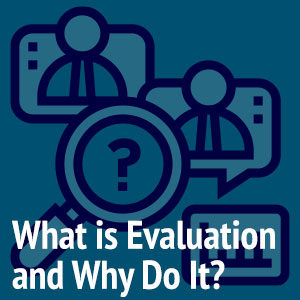 Although there are a number of perfectly good reasons that an organization may choose to create and maintain an internal program evaluation capacity, there are number of very good reasons, indeed, advantages, associated with the use of an external evaluator.
Although there are a number of perfectly good reasons that an organization may choose to create and maintain an internal program evaluation capacity, there are number of very good reasons, indeed, advantages, associated with the use of an external evaluator.
Breadth of Experience
External evaluators bring a breadth of experience evaluating a range of programs. Such eclectic and wide-ranging experience can be especially useful when evaluating innovative programs that seek to creatively serve their target populations. Evaluators who have worked in a variety of program contexts and who have worked with a diversity of program stakeholders can draw on their experience to inform current evaluation initiatives. External evaluators have often “seen” an abundance of programs, and the resulting knowledge can be a substantial asset to the organization that engages their professional services.
Objectivity
External evaluators are often more disinterested and objective in their view of a program and its outcomes. External evaluators are less susceptible to the internal politics of organizations, have less of an economic ‘stake’ in the success or failure of a program, and therefore are better positioned to provide an unbiased eye with which to conduct a program evaluation. Objectivity is critical for discovering whether a program really works or not and is essential if program stakeholders are to know whether a program achieves its intended results.
Expertise
While internal evaluators may be highly skilled, external evaluators often mobilize a range of expertise and technical skills that internal evaluators under-develop. Professional evaluators specialize in developing their skills, and apply their expertise to a variety of programs, they often have a superior ‘quiver’ of evaluation knowledge and wisdom. Professional expertise is the province of specialization, and career program evaluators necessarily develop rich and deep evaluation expertise.
Cost-Effectiveness
An external evaluator can be very cost effective, especially for smaller and mid-sized organizations (local non-profits, community-based organizations, school districts, family and community foundations, colleges, etc.) that may not have sufficient resources with which to fund and maintain an internal evaluation capacity. External evaluators are able to contain and reduce infrastructure costs, and therefore are comparatively inexpensive for clients.
With 20 years of experience in providing program evaluation services to its clients in the non-profit, foundation, education, health, and community service sectors, Brad Rose Consulting, Inc. is able to provide cost effective, customized, and high-value, program evaluations to its clients. More information about the kinds of program evaluation services we provide is available here.



